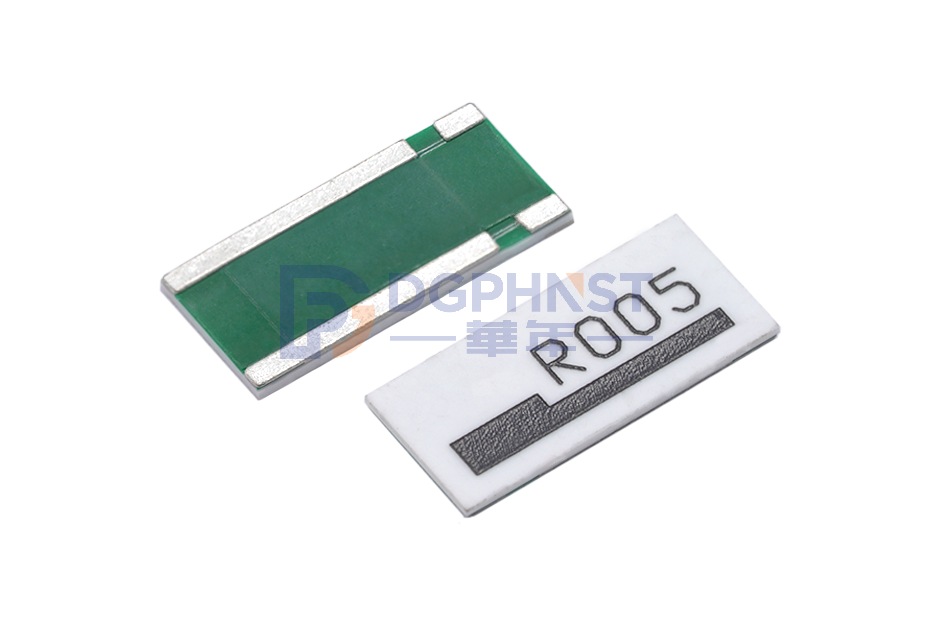hnstshop.com/product-list/R05-p1-l10.html" target="_blank" rel="noopener">Four-terminal current sensing resistors, also known as four-wire current sensing resistors or four-wire resistors, are resistor devices used for precise current measurements. They employ four electrodes, namely two current electrodes and two voltage electrodes, to accurately measure the current in a circuit. This article aims to introduce the principles, structure, features, applications, and factors to consider when selecting and using four-terminal current sensing resistors.
@ser[HFCL-1206]@ser[HFCL-3015]
@ser[HFCL-0603]
1. Principles
Four-terminal current sensing resistors utilize the relationship between the voltage across the resistor and its resistance value to calculate the current. By applying a stable current through the current electrodes and measuring the voltage across the resistor with the voltage electrodes, the precise current value is calculated using Ohm's law (V=IR).
2. Structure
Four-terminal current sensing resistors typically consist of a precision resistor element and four electrodes. The resistor element is manufactured using high-precision materials to provide accurate resistance values. The four electrodes comprise two current electrodes for passing the current and two voltage electrodes for measuring the voltage across the resistor.
3. Features
- High Accuracy Measurement: Four-terminal current sensing resistors employ the four-wire method, which eliminates the resistance of the resistor's leads, resulting in highly accurate current measurements.
- Low Resistance Values: These resistor devices often have low resistance values and can withstand high currents without significant heat generation or voltage drops.
- Low Temperature Drift: Four-terminal current sensing resistors exhibit low temperature coefficients, enabling stable measurements across different temperature conditions.
- Wide Operating Temperature Range: They can operate effectively over a wide temperature range, adapting to various environmental conditions.
- Strong Immunity to Interference: Due to the reduced impact of lead resistance and voltage drops through the four-wire measurement method, this type of resistor demonstrates robust immunity to external interferences.
4. Applications
Four-terminal current sensing resistors find extensive applications in various fields, including but not limited to:
- Electronic measurement instruments: Used for precise current measurements in multimeters, oscilloscopes, power analyzers, and other testing equipment.
- Power electronics: Employed in motor control, power supplies, inverters, and battery management systems to monitor and regulate current flow.
- Automotive industry: Utilized for current sensing in electric vehicles, hybrid vehicles, and automotive power distribution systems.
- Industrial automation: Applied in industrial machinery, robotics, and control systems for accurate current monitoring and protection.
In conclusion, four-terminal current sensing resistors are essential components for accurate current measurements in diverse applications. Their high accuracy, low resistance values, temperature stability, and strong immunity to interference make them valuable in various fields of electronics and power management. When selecting and using these resistors, it is crucial to consider the specific requirements of the application to ensure optimal performance and reliability.


